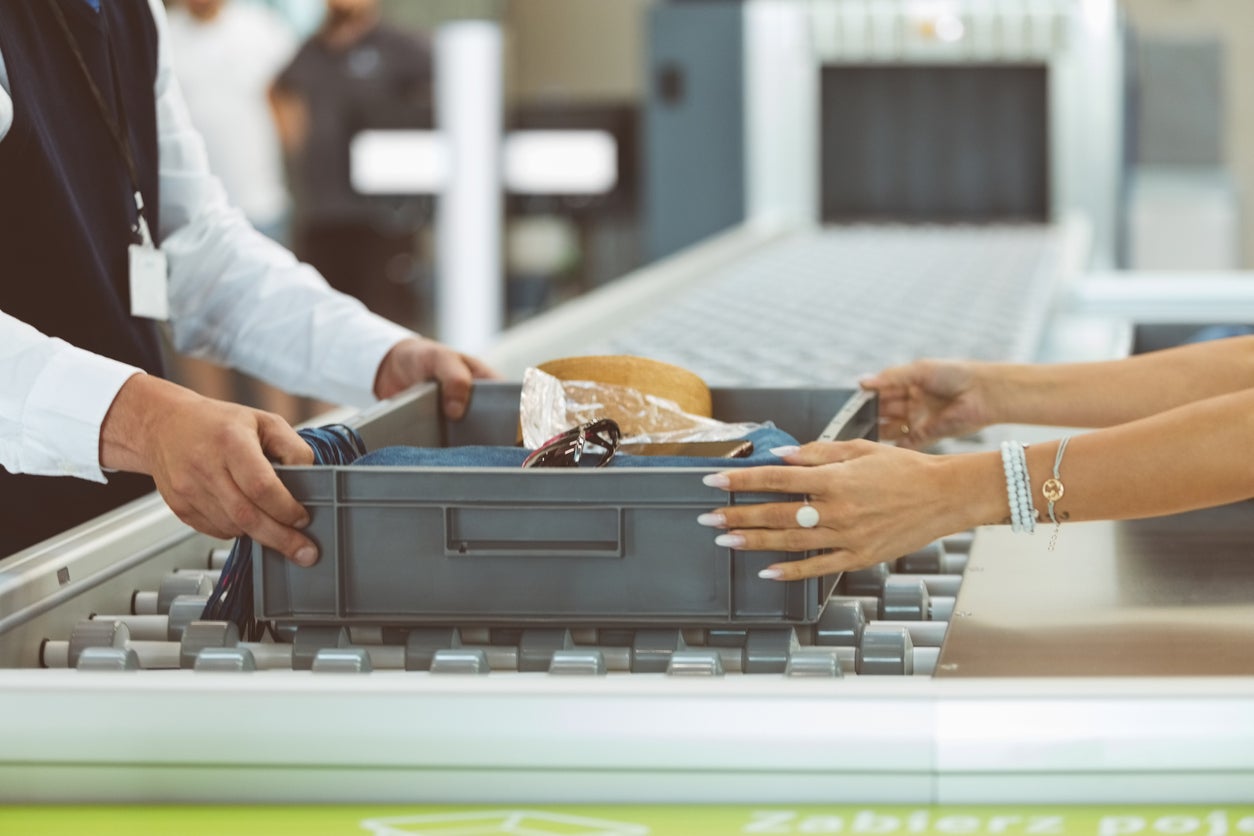Where should I visit during my short break in Ireland?
Simon Calder answers your questions on visiting Ireland, unusal items in airport security, currencies in Egypt and travelling during industrial action


Q I’m thinking of a short break to Ireland. Any suggestions?
Anil G
A I estimate nine out of 10 of people taking a short break in Ireland head for Dublin. The capital is welcoming and intriguing, with a wide range of attractions from the ancient Book of Kells to the extremely popular Guinness Storehouse. There are, of course, many excellent places to eat and drink – and I recommend a guided crawl of the best pubs.
You mention a “short break” rather than strictly a city stay: if you can spare an extra day, head for Howth on the northern end of Dublin Bay. Yet such is the industrial scale of tourism in Dublin that I think you will receive a warmer welcome elsewhere.
If you include the whole island rather than just the Republic, Belfast is the natural alternative. Northern Ireland’s capital hosts the highly successful Titanic Belfast attraction, the encyclopaedic Ulster Museum and the vivid reflection of recent events in the “Peace Wall”. Perhaps because of associations with The Troubles, Belfast still does not attract visitors in the numbers it deserves – and the absence of crowds makes it a more engaging experience. Among the many possible side-trips, I particularly recommend the train to the pretty port of Bangor.
The third city that deserves your attention: Cork, a handsome city which has the extra benefit of the port of Cobh (formerly Queenstown) at the end of a short rail trip. This was the last call for Titanic on her fateful maiden voyage. Another possible excursion: to Kinsale, the fishing port turned gastronomic capital of Ireland.
If you prefer smaller cities, Derry is the most compelling on the island: a walled city on a hillside, with spectacular land- and seascapes beyond – and many stories to be told, ideally by a local guide. To complete the set, I’d like to include Galway and the Connemara coast and mountains beyond. But flights no longer serve the western city, so it is better included in a longer itinerary – perhaps along part of Ireland’s Wild Atlantic Way.

Q How can I find out what unusual items are allowed as hand luggage on flights? Six years ago my mother-in-law died. While turning out her house we came across some plate-glass photographic negatives in a wooden box. My wife has a cousin in Hampshire who is an ex-professional photographer and he is interested in having them. Yet because we live in Scotland, six years later we still haven’t passed them on.
Next March we will be flying from Edinburgh to London for a family wedding so we have an opportunity to hand them over. I don’t want to check them in as hold baggage. But will security regard pieces of glass as potential weapons in the cabin? We would hate to have them confiscated at the airport having had them in the family for over 100 years.
Stephen B
A The basic premise for aviation security is to ban anything that could be used as a weapon. The Civil Aviation Authority says “any item that resembles a firearm in any way, whether capable of firing a projectile or not, is prohibited”, as are liquids, aerosols and gels (“LAGs”) in quantities of 100ml or more. Individual airports have their own policies on top. A timely example: in the run-up to Christmas some UK airports allow crackers to be taken through security, others do not. As well as the specifically forbidden items, staff and managers on duty have the authority to prohibit any item that they feel poses a potential threat. So if a security guard decides that the family heirloom could present a danger, you may be obliged to surrender it. You could open a dialogue with Edinburgh airport – supplying details of the size and number of glass negatives – and see if you can get a guarantee that they will be allowed through. But I imagine the authorities would not want to commit to such an arrangement.
Instead, I suggest you find someone who is travelling from Edinburgh to London by train and entrust the precious photographs to them. Your wife’s cousin could presumably travel from Hampshire to London to pick up the crystalline cargo from the courier? I travel between the Scottish and English capitals by rail fairly frequently. I will get in touch ahead of my next trip in case I can help as the go-between.

Q What do you think is the best currency to use in Egypt at the moment?
Paul M
A As I am in Cairo right now, I feel well placed to answer that question. The Egyptian pound is what you mostly need for day-to-day spending. It is one of the few currencies to have depreciated significantly against sterling recently. Three years ago I was getting 18 Egyptian pounds for each UK counterpart; this week it is 38. That is partly a reflection of the rate of inflation, but also that Egypt has become even better value for overseas visitors.
You will certainly need cash. In this trip, even in more upmarket places, I have found credit cards are by no means universally accepted. You are legally allowed to take up to 5,000 Egyptian pounds (£132) into the country, but it would be irrational to obtain them in advance in the UK. The rates are terrible. As soon as you arrive at an Egyptian airport from abroad, you are confronted by banks offering to change money. I like to exchange just £20 on arrival because the rate is usually significantly better at city or resort bureaux de change. The lower denominations you procure, the better, because not having change happens fairly frequently. Coins have almost disappeared, and you may find you are offered sweets in “change” at shops.
Egyptian pounds comprise only part of the answer, though – because you will need US dollars to pay for the visa on arrival. It costs $25, cash only. If you only have sterling or other hard currency, don’t expect a great rate of exchange.
A stash of low-denomination dollars is always useful: everyone in Egypt knows what they are worth. Single dollar bills (worth about 30 Egyptian pounds/£0.80) are good for tipping, especially when your supply of notes is running low. Prices for many tourist services, from buying a SIM card on arrival (avoiding punitive roaming charges) to excursions are quoted in US dollars, and transactions are a little smoother if you are able to pay in that currency.
Take more dollars than you think you might need; I have just $4 left and will soon be down to my less-appreciated sterling.

Q I need to travel from London to Gatwick on Wednesday 6 December. Do you think Thameslink will be running a near-normal service or will it be reduced because of the Aslef overtime ban?
Tom E
A The train drivers’ union, Aslef, will step up its industrial action early next month as part of a long and bitter dispute with the 14 train operators that are controlled by the government. The union wants a decent no-strings pay rise, while rail firms say even a modest increase is contingent on reform of working arrangements. The two sides are no closer to reaching a settlement than they were at the start of the strikes in the summer of 2022. So I see no possibility of the nine-day overtime ban, which begins on 1 December, being called off.
The likely impact on each train operator varies according to the extent to which it is dependent on overtime. Thameslink relies from time to time, as most rail firms do, on bringing in train drivers to cover gaps in the schedule. Currently, it says: “Train service plans for these dates are yet to be confirmed.”
Any rail firm in this position may make pre-emptive cancellations to take account of the overtime ban and reduce on-the-day disruption. If this is the case, you should not encounter too much of a problem: Thameslink has four fast trains every hour from London St Pancras, Blackfriars and London Bridge to Gatwick airport, so even halving the schedule would still give you plenty of choice. Assuming they run.
As I found to my cost when travelling from Luton to London on Thursday night/Friday morning, a shortage of train crew can blight journeys at short notice even when no industrial action is taking place. In December, staff sickness is likely to be higher – in any industry – than during warmer months. So for a journey to Gatwick during the overtime ban, I would be adapting my policy of planning to catch the service before the last possible train that will get me there in time. Add an hour’s buffer, and I predict you will get to the airport without stress.
Email your question to s@hols.tv or tweet @simoncalder






Join our commenting forum
Join thought-provoking conversations, follow other Independent readers and see their replies
0Comments